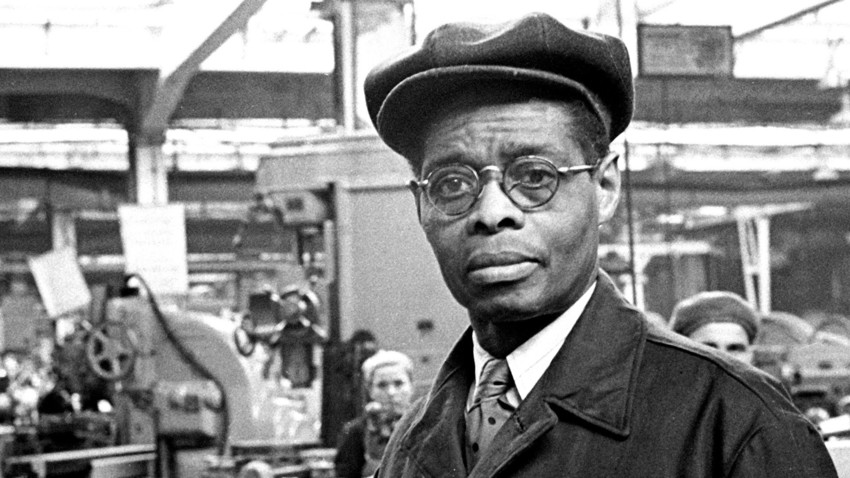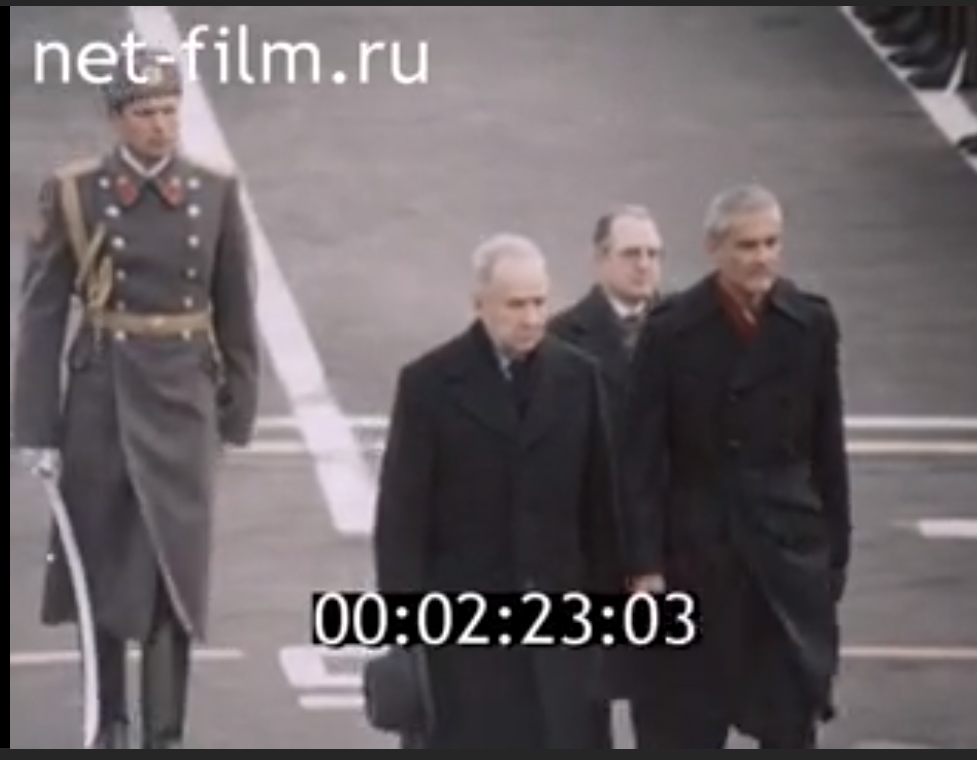Jamaica and Jamaicans have had interactions with Russia and Russians, some of it indirectly.
One of the earliest known contacts concerned ganja (marijuana). In Marihuana: The First Twelve Thousand Years, E.L. Bell said that in “around 1800, the British sent a Russian hemp expert to Jamaica to see if the [ganja] plant could be possibly raised on the island, but the attempt failed, and production was abandoned.”
Jamaican-born Claude McKay, part of the Harlem Renaissance in New York in the early 20th century, led a delegation of African Americans to the Union of Soviet Socialist Republic (USSR) in 1922.
McKay, a celebrated poet, was impressed. “By all accounts the Soviets accorded McKay a royal treatment that made him dizzy with success,” Maxim Matusevich writes in Journeys of Hope: African Diaspora and the Soviet Society. “During the 5th anniversary of the October Revolution he stood on the grandstand in the centre of the wind-swept Red Square shoulder-to-shoulder with the crème of the Bolshevik Party, observing the military parade by the victorious Red Army and cheering Soviet Russia’s most arresting speaker Leon Trotsky.”
Calling his excursion, “My magic pilgrimage,” McKay exulted, “Never in my life did I feel prouder of being an African, a black, and no mistake about it…I was like a black icon.”
McKay’s enthusiasm may have influenced other black Americans to visit Soviet Russia, including W.E.B. Dubious, perhaps the leading African American intellectual at the time, who went there in 1926.

The Jamaican who has had the longest association with Soviet Russia was Robert Robinson, whose 1988 autobiography, Black On Red: My 44 Years Inside the Soviet Union, tells an interesting tale. Born in Kingston, Jamaica’s capital, in 1907, he studied mechanical engineering in Cuba, worked for the Ford Motor Company in Michigan in the United States, then moved to Russia on a one-year contract, but remained “trapped” there for 44 years.
Linda Feldmann, Staff writer of The Christian Science Monitor, reported in August 1988:
A naturalized American citizen born in Jamaica, Robinson was working for the Ford Motor Company in Detroit in 1930 when the Russians came calling. They offered him almost twice what he was earning, free housing, and other luxuries to make tools and teach in the Soviet Union. The American depression had just begun; as the only skilled black laborer at Ford, he felt insecure about his future….
Not long after he arrived in Stalingrad to work as a machinist, he began to understand part of his purpose for being there. When two white Americans working at the same factory beat him up, the Soviets tried and convicted them for racial prejudice. The Soviet news media made him into a celebrity.
“The Soviets tried to use me for their propaganda,” he says. “They tried to get me to denounce capitalism on radio broadcasts to the West, but I refused.”
Cold War
Much of Jamaica/Soviet-Russia relationship was shadowed by the Cold War between the US and the USSR. As part of the Caribbean, it was difficult for Jamaica to escape such entanglements. Henry Kissinger, American Secretary of State at the height of the Cold War in the 1970s, is alleged to have described the Caribbean as “America’s soft underbelly.”
US resolve was apparently steeled following the 1959 Cuban Revolution. American ally, Fulgencio Batista, was overthrown and Fidel Castro installed president of Cuba. Castro later embraced Marxist-Leninist political doctrine, installed socialist economic policies and became a major client nation for the Soviet Union in the Western hemisphere.
The American political class and intelligence establishment never got over “losing Cuba,” and were determined for it to not be repeated elsewhere in the Americas; one reason the US supported some of the worst regimes in the world. Much of Latin America was ruled by harsh, despotic, often right-wing dictatorships, but they had American backing because they were staunchly anti-Soviet and pro-America.
The roots of American protectionism in the Americas go back to at least the early 19th century. American president James Monroe issued what became standard policy in 1823:
The American continents are henceforth not to be considered as subjects for future colonization by any European power… we should consider any attempt on their part to extend their system to any portion of this hemisphere as dangerous to our peace and safety… therefore it is impossible that we should behold such interposition with indifference.
This was bold. At the time England, Spain, Portugal and the Netherlands had substantial presence throughout the entire area, owning colonies and running trade. As Spanish and Portuguese power slipped over their territories, the US gained influence.
The Monroe Doctrine, as it became known, explains American actions and behavior. Political alignment was more important than human rights. Politics trumped economics. The US supported genocidal dictators if they were pro-American or anti-Soviet. Or opposed those who, even if not exactly pro-Soviet, gave off the slightest whiff of leftist or socialist leanings. A clear example was the September 1973 overthrow and assassination of Salvador Allende, president of Chile, allegedly orchestrated by, or with the support of, the CIA. And the 1983 American invasion of tiny Grenada.
The Soviets, led and dominated by Russians, never gave up trying to extend their sphere of influence into the Americas, evidenced by Cuba. Little Jamaica, while not suffering in the extreme, inhaled some smoke that scorched the lungs. Jamaica’s good, or bad fortune, is that it lies close to Cuba. Just 90 miles separate both islands at their closest points.
In the mid-1970s, in a leap of faith (some say folly), Jamaica defied 150 years of American doctrine and established diplomatic relations with the Soviet Union, Cuba and China. Prime Minister Michael Manley visited Cuba in July 1975 and sent a delegation to the congress of the Cuban Communist Party in December that year. Castro visited Jamaica in 1977.

The apogee of Manley’s sins was his visit to Moscow in April 1979. He signed long term trade agreements with the USSR, where the Soviets would get Jamaican bauxite (at the time, Jamaica was the largest exporter of bauxite, the raw product for aluminum). Jamaica would get Soviet-made goods such as the infamous Lada cars, as well as technical assistance and loans. There were joint Jamaica-Soviet agreements in sea navigation and fishery.
Accords with other Soviet-bloc countries followed. Diplomatic and commercial ties with Bulgaria, Czechoslovakia, East Germany, Poland and Romania. Trade agreements with Hungary and Yugoslavia. (My dentist, an excellent practitioner, was Hungarian-trained.)
This shift eastward away from the north proved problematic for the island in a context where what mattered was global political alignments. Jamaica, a mere gnat, chose to ride the bear instead of soaring with the eagle. American fury was unrelenting, and it was a war Jamaica could not win. By 1980, an exhausted island whimpered back into American arms.
A CIA declassified document written in 1981, Soviet Policies and Activities in Latin America and the Caribbean, alleges:
In keeping with the pattern elsewhere in the Third World, the Soviets try to infiltrate the bureaucracy of the host government. In the case of Jamaica under Michael Manley, for example, the KGB developed contacts with a wide range of Jamaican political figures—including Manley and government ministers—and helped Manley to organize a special intelligence unit to monitor his political opponents and US activities. The KGB was also in close contact with some of Manley’s radical supporters who employed violence against the opposition. Yet, at the same time, the Soviets regarded the regime as unstable and proved unwilling to provide significant economic assistance, which might have helped to ensure its survival.
This piece acknowledges US activities on the island (“the KGB…helped Manley to organize a special intelligence unit to monitor his political opponents and US activities”). Americans and Soviets/Cubans were on the island monitoring and countering each other, sometimes using violence against the Jamaican people.
The US took the extraordinary step of issuing denials to do harm. According to a November 3, 1977, report by the Washington Post:
The Central Intelligence Agency yesterday strenuously denied a published report that it undertook a destabilization program in Jamaica last year, including several abortive attempts to kill Prime Minister Michael Manley…
Departing from its customary practice of refusing on such reports comment, the CIA said it undertook no covert action program of any kind against the Manley government and had no part in any plots to kill Manley.
Whatever the means used, the US did pressure Manley to change his stance and abandon his course, evidenced by Kissinger’s visit to Jamaica in December 1975, followed by a beefing up of the staff at the American embassy in Kingston shortly after.
Transformed relationship
Since the demise of European communism in 1989 and the breakup of the Soviet Union in 1991, the relationship between Jamaica and Russia has thawed after the island abandoned its flirtation with the Russians and Cubans in 1980.
Russian bauxite company, Rusal, became a major investor in Jamaica’s bauxite industry, owning 93 percent of West Indies Alumina Company (WINDALCO), which operates two plants, Ewarton Works in St. Catherine and Kirkvine Works in Manchester, and its shipping port, Port Esquivel.
More recently, visa requirements for travel between both nations were waived. “Russia Foreign Minister Sergey Lavrov and his Jamaican counterpart Kamina Johnson-Smith have signed a visa waiver agreement on the sidelines of the 73rd session of the United Nations General Assembly,” TASS, the Russian News Agency, reported on September 28, 2018.
“Minister of Tourism, Hon. Edmund Bartlett, says Russian tourists, entering Jamaica, will no longer be required to use visas,” the government-owned Jamaica Information Service, announced in late October this year. “The agreement allows Jamaicans and Russians to spend up to 90 days per year for tourism, cultural exchange or business purposes.”
Relationship transformed.
Eron Henry is author of Reverend Mother, a novel. Ole Time Sumting blog was recognized with an Award of Merit by the Religion Communicators Council in April 2018. You may listen to his most recent podcast on Soundcloud or YouTube.
informative
In my view Peter ” the great ” Tosh has done more for the advancement of herb than anyone before or since .
Very educational. I’m a lover of history, time well spent in research.
Thanks